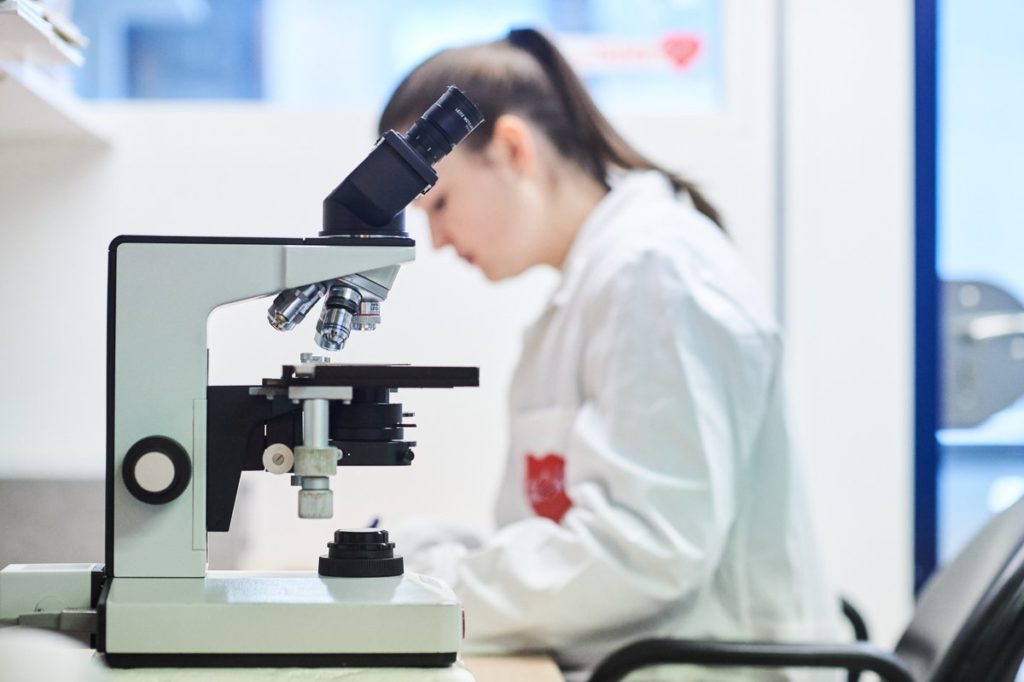The COVID-19 pandemic has brought unprecedented changes to our societies, pushing us to reconsider and change the way we live. This global challenge needs immediate solutions, and this is exactly where the European Institute of Innovation & Technology (EIT) comes in.
The EIT was built with the aim of addressing societal challenges with innovative solutions. We power innovators to turn their best ideas into products, services and jobs that make a difference to Europe and to our planet, from health and digitalisation, to raw materials and climate. While the road to Europe’s recovery is a long one, the right innovations will be the tools to shorten it.
As an immediate response, we launched the EIT Crisis Response Initiative pledging EUR 60 million for Europe’s innovators. With these new funds our Knowledge and Innovation Communities (KICs) will offer solutions to the pandemic and support high potential start-ups and SMEs, mitigating the risk of permanent damage that the crisis brings to young entrepreneurs. Close to 1,500 innovators and entrepreneurs from 44 countries applied, showing the depth of talent of innovators and the need for crisis recovery support. The awarded funds will power high-impact innovations in health, climate change, digitisation, food, sustainable energy, urban mobility, manufacturing and raw materials.
To accelerate Europe’s innovation capacity, we need to strengthen cooperation between business, education and research and enhance collaboration across borders. EIT strives to achieve this as Europe’s largest and most experienced innovation network with more than 2,000 partners and 60 innovation hubs. We work closely to support Europe’s recovery from the crisis, by powering Europe’s entrepreneurs and COVID-19 related innovation projects in this critical moment.
However, it’s important to remember that it’s not enough to simply create opportunities for innovators, we need to realise that we must all embody the innovative spirit, re-imagine the status quo and adapt ourselves, our work, and our daily lives to reflect the lessons that COVID-19 has taught us. Many of the opportunities and ideas already lie on our doorsteps, by applying the lessons we have learned and seizing these opportunities we can make a real leap towards a more green, healthy and digital future for Europe.
For example, when universities across Europe closed their doors, the EIT Community quickly supported them to shift to online education. By sharing knowledge among our network, a number of resources were made available to help teachers at universities (and elsewhere) to quickly adjust to quality online teaching and learning.
We learned that online education exploits the possibility of crossing boundaries and eliminating limitations of time and place. With EIT bringing innovation and entrepreneurship modules online to support blended education, not only can the impact of entrepreneurial education be widened, but the access to modalities of education are at reach to more innovators than ever before. This also means equal access to education for those who otherwise would not be able to afford it and through the special promotion of women entrepreneurship.
Digital transformation is not just happening in education, a digital shift was key to ensuring business continuity during the pandemic. However, never before was it so apparent how much of a digital skills gap Europeans possessed. Currently, at least 85% of jobs require some level of digital ability, while only 56% of adults possess at least basic digital skills. Recently, the European Commission released the European Skills Agenda with 12 flagship actions, including a Pact for Skills, rallying partners to cooperate in unlocking private and public investment funds and skill training opportunities. Through this, the EIT will play a significant role in improving and adapting citizens’ digital skills, including by supporting higher education institutions in building their innovative capacities.
In times of crisis, data must also be available to be assessed and analysed in a timely manner. This is exactly what Carolina Garcia-Vidal, project coordinator of The Central Control Project, sought to achieve with her innovation project supported by EIT Health. The Central Control Project is a digital platform that digests and syndicates the latest medical research on COVID-19 so that physicians and other stakeholders have access to the best quality research when making their decisions. Thanks to the platform, doctors that are not specialised in infectious diseases can upskill their knowledge to be able to make more efficient and effective decisions to more patients in need.
This is just one of many examples of EIT products in action that highlight the drive and creativity for innovation across the entire EU: From masks made of alternative material, to interactive robots that can alleviate loneliness in elderly care residents, to the world’s greenest lithium-ion battery. What’s behind these cutting‐edge EIT innovations are the right amount of support and mentorship from the EIT Community in cultivating an ecosystem that trains, develops and powers innovators to start-up and scale-up their best ideas by providing them with the right support that takes their innovation to the next level.
As many of us try to navigate in the ‘new normal’, it is crucial that we remain focused on creating a healthier, greener and more sustainable future for our planet and its people. Moments of global shock such as the ones brought on by COVID-19 enable systemic shifts in our society and policies. Such shifts need a common response and cooperation at European Union level to be effective. Shifts in technology used and shifts in mindsets being open to explore new possibilities and ideas are the fertile ground needed for innovation. The EIT in its unique position as Europe’s largest innovation network stands ready to support this shift in order to fast track Europe’s recovery.
By Martin Kern, EIT Director


